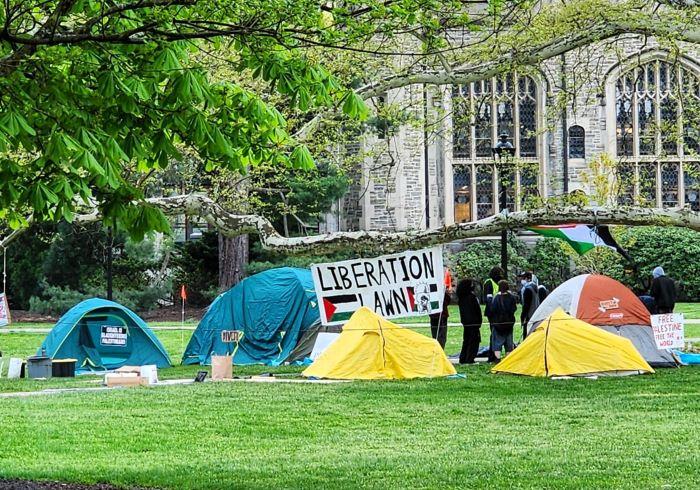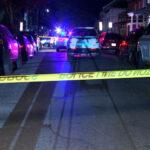MID-HUDSON – When a prominent activist chained himself to a fence at the Competitive Power Ventures (CPV) power plant years ago, Brendan Casey, then a Captain with the State Police, had troopers move in quickly.
Casey said troopers used bolt cutters to remove the man and dispersed a group of protesters blocking the front within an hour.
“Everyone has the right to protest,” said Casey, who served in the State Police for 30 years. “But you have to tell them what the expectations are and if they don’t go with the program, you have to act immediately, block access and get the situation resolved swiftly.”
Although on a different scale of protest, Casey said that type of proactive reaction is needed to maintain law and order and has been lacking in response to unruly Pro-Palestinian college protests throughout the country.
This week, as the war in Gaza continues, protests started locally at Vassar College and SUNY New Paltz. The protests began peacefully but have grown more unruly as the week went on.
On Thursday, Vassar president Elizabeth Bradley sent an email to students, staff, and faculty, noting that things were changing, and not in a positive manner. Bradley wrote that wrote that students used social media to invite people unaffiliated with Vassar to campus to support the demonstrators. She indicated that a group of protesters that she believes are not affiliated with the liberal arts college loudly demonstrated and intimidated administrators while also disturbing students trying to study in the library.
At New Paltz, College officials had advised the group that any tents set up on the campus needed to be removed by Thursday evening. State police responded by arresting protesters just after 10 p.m.

“The colleges are getting the message that there are a lot of outside agitators not affiliated with the college coming onto campus,” Casey said. “I think they need to shut down the encampments and tents, and if you don’t have a college ID, you can’t be allowed on campus. You have to react in a timely fashion because, if not, you have anarchy with students who paid a lot of money trying to get through finals with all of this going on.”
Casey did commend SUNY New Paltz on its response, stating: “New Paltz reacted quickly and told the protesters what was not allowed and when they didn’t listen, moved in.”
Former New Windsor Supervisor George Meyers said that college protests that occurred throughout the country, including one at Columbia University, should serve as a cautionary tale for college administrators. Columbia protesters were taken into custody late Tuesday night after the school president asked the NYPD to clear them from campus.
Police said protesters had barricaded the halls with soda machines, chairs and other furniture, but the three encampments were dismantled. Protests have also erupted in New York City at CUNY, Fordham University and New York University.
“It got ahead of them at Columbia, and they did not react quickly enough, and they paid a price,” said Meyers, who served in the State Police for 25 years, retiring as a Major/Troop Commander. “The NYPD did a good job with the situation, but sometimes those academia types can’t make a decision. You need to lead or get out of the way. Once they took over a portion of the campus, they had gone too far. You have your right to freedom of speech, but once they started pitching tents you had to end it.”








